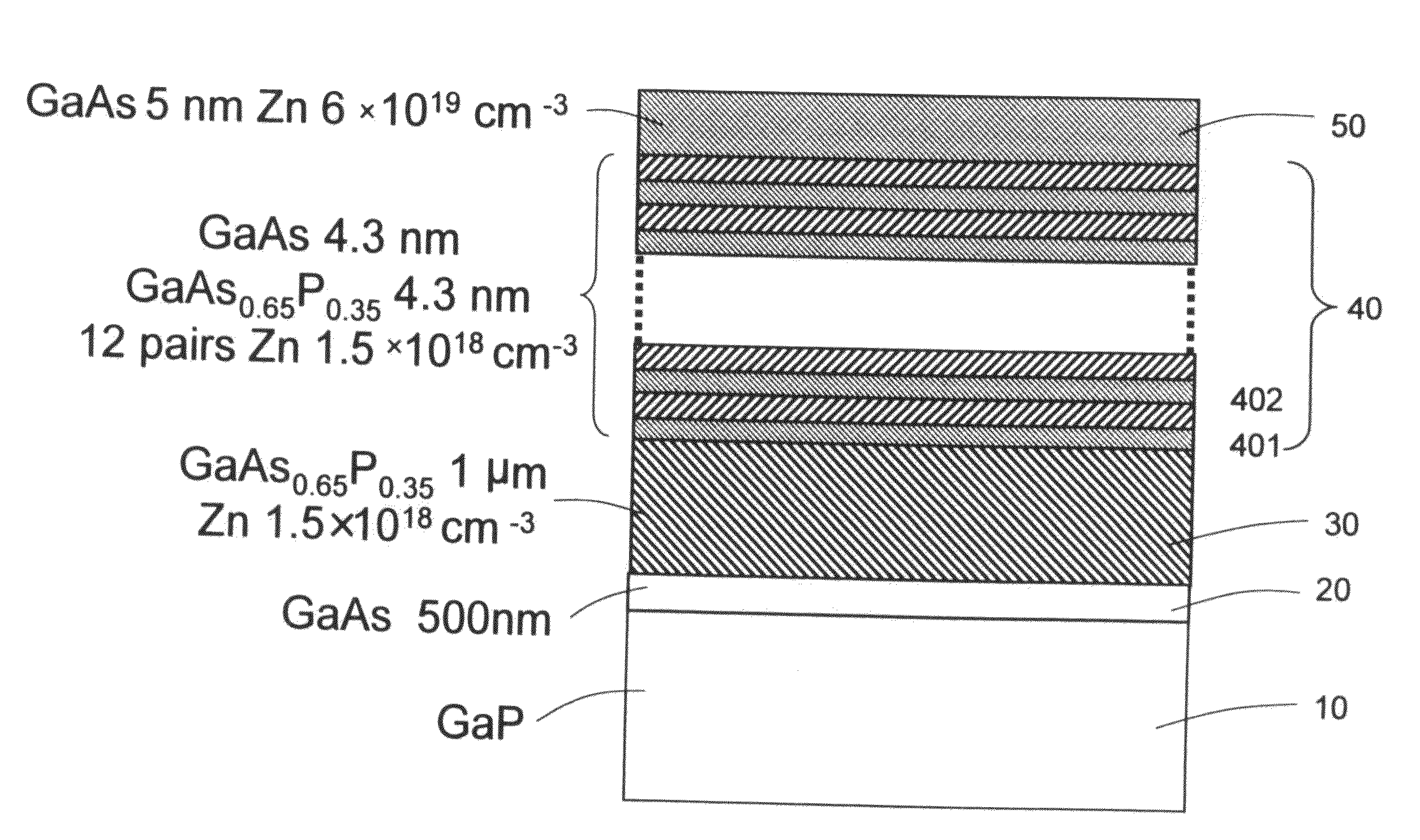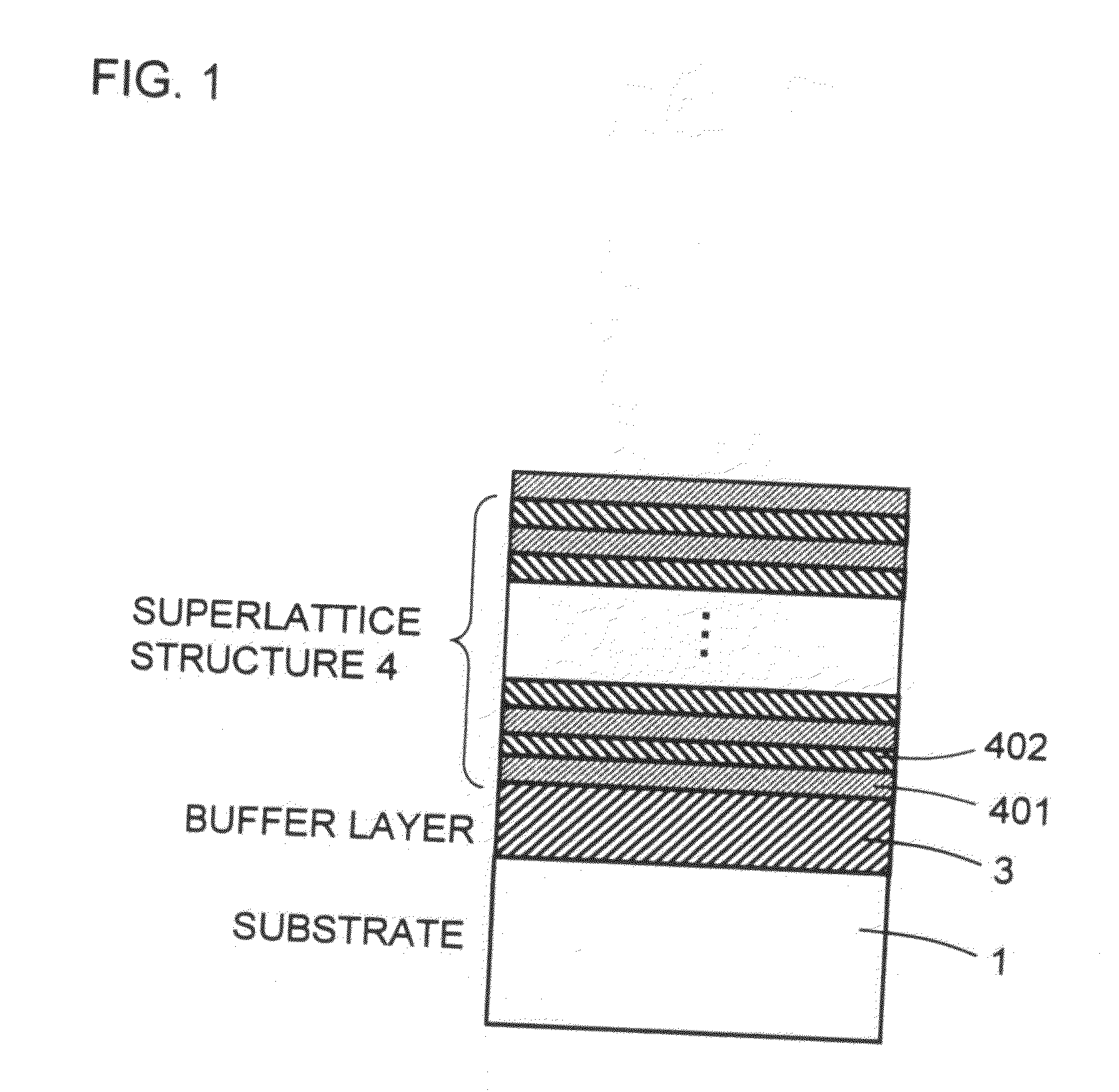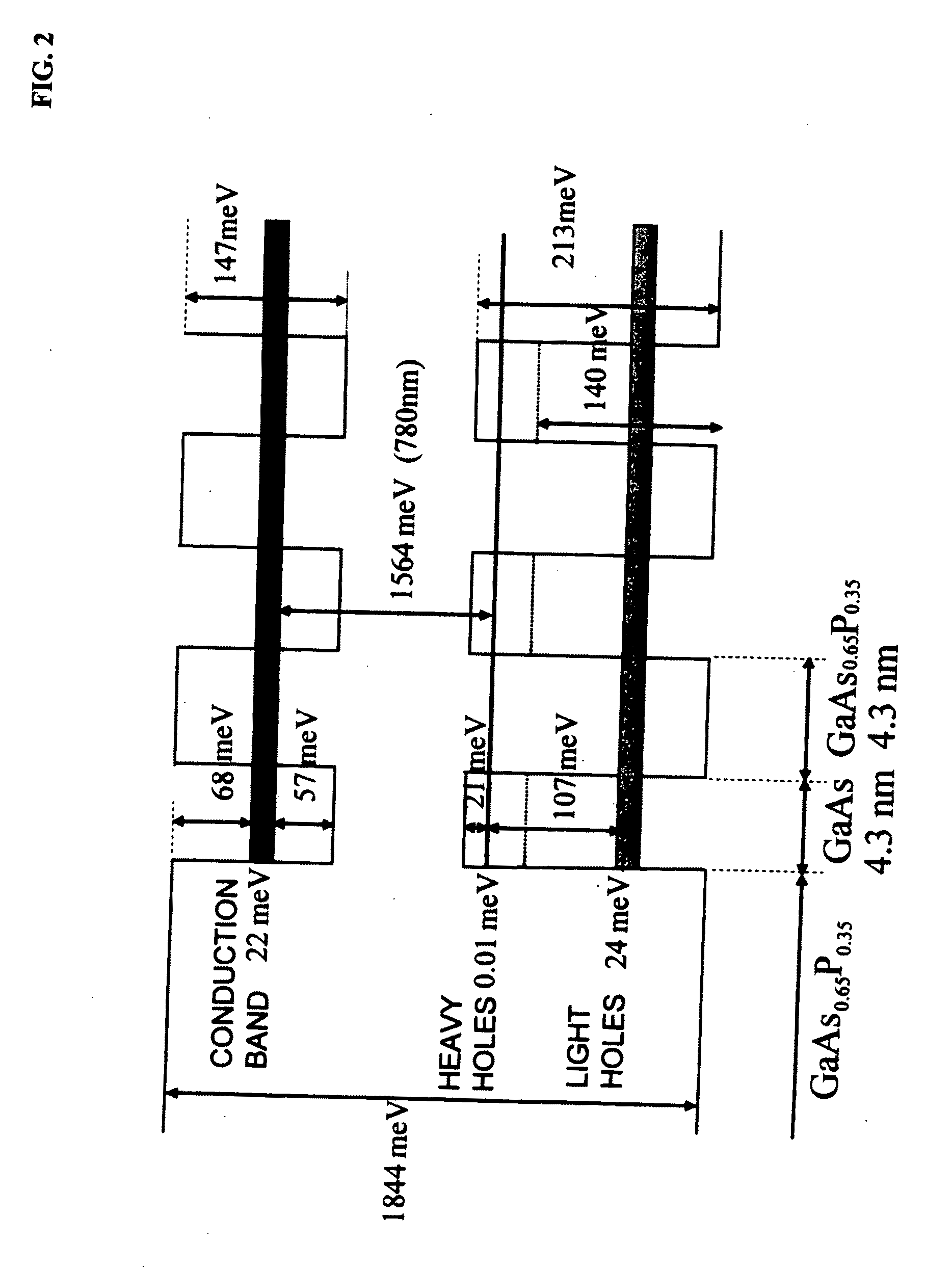Spin-polarized electron source
a spin-polarized electron source and spin-polarized technology, applied in the direction of discharge tube/lamp details, discharge tube main electrodes, electric discharge lamps, etc., can solve the problem of low polarization and structure, and achieve high polarization, reduce the dislocation density of the strained superlattice layer on the buffer layer, and improve external quantum efficiency
- Summary
- Abstract
- Description
- Claims
- Application Information
AI Technical Summary
Benefits of technology
Problems solved by technology
Method used
Image
Examples
example 1
[0084]As shown in FIG. 4, Example 1 is a spin-polarized electron generating device which uses a GaP substrate and a GaAsP / GaAs strained superlattice layer. Specifically, an intermediate layer 20 formed of GaAs having a thickness of 500 nm is formed on a substrate 10 formed of GaP; a buffer layer 30 having a thickness of 1 μm is formed on the intermediate layer 20; a strained superlattice layer 40 is formed on the buffer layer 30; and a cap layer 50 having a thickness of 5 nm is formed on the strained superlattice layer 40.
[0085]This structure is a transmission-type strained superlattice semiconductor photocathode designed for use as a spin-polarized electron generating device of high polarization and high brightness. The strained superlattice layer 40 was designed as shown in FIG. 4 on the basis of theoretical calculation. Specifically, the buffer layer 30 is formed of GaAs0.65P0.35 having a thickness of 1 μm and doped with Zn at a concentration of 1.5×1018 cm−3. The strained superl...
example 2
[0090]As shown in FIG. 7, Example 2 is a spin-polarized electron generating device which uses a GaAs substrate and a GaInP / GaInAs strained superlattice layer. For a certain purpose of use of an electron generating device, it is necessary to increase current which can be extracted from a photocathode. One method to increase current to be extracted is to increase power of excitation light. In application to an electron microscope or a like application, utilization of a small-sized, highly versatile semiconductor laser, rather than a large-sized laser, is effective. Many versatile semiconductor lasers having an emission wavelength of 900 nm to 1,000 nm and an output of several W are available. Therefore, utilization of a strained superlattice in which electrons are excited by excitation light in this wavelength range is effective. Also, for reduction of size, use of a transmission type is indispensable.
[0091]As shown in FIG. 7, the spin-polarized electron generating device of the prese...
example 3
[0095]As shown in FIG. 8, Example 3 is a spin-polarized electron generating device which uses a GaN substrate and a GaN / GaInN strained superlattice layer. As shown in FIG. 8, the spin-polarized electron generating device of the present example is configured as follows: an intermediate layer 22 formed of InN having a thickness of 500 nm is formed on a substrate 12 formed of GaN; a buffer layer 32 having a thickness of 1 μm is formed on the intermediate layer 22; a strained superlattice layer 42 is formed on the buffer layer 32; and a cap layer 52 is formed on the strained superlattice layer 42. The buffer layer 32 is formed of GaN having a thickness of 1 μm and doped with Mg at a concentration of 1.5×1018 cm−3. The strained superlattice layer 42 is composed of 12 pairs each consisting of a well layer 421 formed of Ga0.8In0.2N having a thickness of 4 nm and a barrier layer 422 formed of GaN having a thickness of 4 nm, and has a total thickness of 96 nm. The well layers 421 and the bar...
PUM
 Login to View More
Login to View More Abstract
Description
Claims
Application Information
 Login to View More
Login to View More - R&D
- Intellectual Property
- Life Sciences
- Materials
- Tech Scout
- Unparalleled Data Quality
- Higher Quality Content
- 60% Fewer Hallucinations
Browse by: Latest US Patents, China's latest patents, Technical Efficacy Thesaurus, Application Domain, Technology Topic, Popular Technical Reports.
© 2025 PatSnap. All rights reserved.Legal|Privacy policy|Modern Slavery Act Transparency Statement|Sitemap|About US| Contact US: help@patsnap.com



